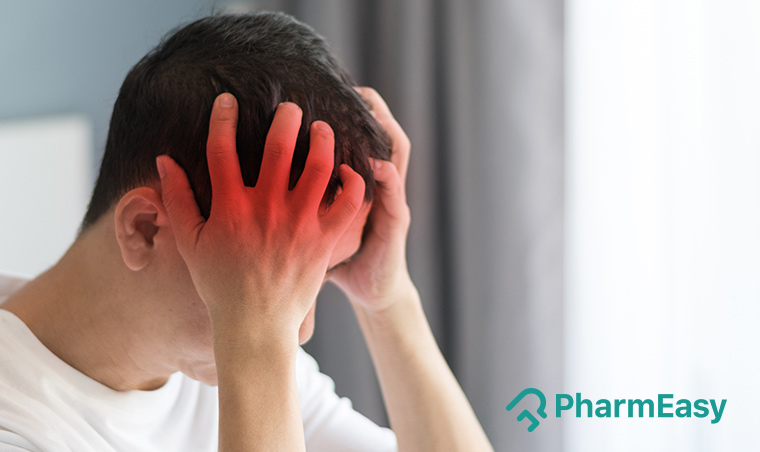Stroke: Symptoms And Treatments
By Nishkak +2 more

Get more insightful and
helpful tips to
treat Diabetes for FREE



Download PharmEasy App




Register to Avail the Offer
Send OTPBy continuing, you agree with our Privacy Policy and Terms and Conditions
By Nishkak +2 more
According to WHO, around 15 million people suffer a stroke annually. Of these 5 million die and a significant number of the remaining population suffer a disability for a lifetime due to stroke. This not only affects the individual but the entire family. Read further to understand how strokes are caused and if there is a way to prevent them.

Strokes are caused when one or more blood vessels present in the brain get ruptured and bleed or if they get clogged, blocking the flow of blood and oxygen to the brain. As a result of the lack of oxygen in the brain, the cells and tissues in the brain stop functioning and begin to die within seconds of the occurrence.
Strokes are a leading cause of death among middle-aged and older individuals and every year thousands of people are reported to have died because of it.
Table of Contents
Some individuals are potentially at a higher risk of suffering from a stroke than others. Several factors come into play when determining who is at greater risk like gender, ethnicity, age etc. Main cause in the majority of cases is high/uncontrolled blood pressure.
Men are supposedly at a higher risk of suffering from strokes than women while Hispanics and African Americans are more susceptible to strokes than people of other races. What are these factors? Let us find out about some of them so that they can be treated at the earliest.
The symptoms of a stroke may appear out of the blue or the body may be giving signs due in advance. Regardless of that, it is important to be aware of the symptoms of a stroke so that one can seek help when in need. While it is difficult to identify the internal signs that a body gives before suffering from a stroke, here are 9 external symptoms that can be easily assessed.
F- Face drooping
A-Arm weakness
S- Speech disorientation
T- Time to act
Here are some ways of caring for a person who is suffering from a stroke:
Always remember- every second counts and early intervention by a doctor can increase the chances of a positive outcome
The following are some ways you can care for a person who has suffered a stroke and needs rehabilitation:
Prevention is better than cure. Therefore, it is important to follow some tips to reduce the risk of occurrence of a stroke, especially among people who are more prone to it.
These measures are usually the basics of living a healthy lifestyle.
The health of the different organs of your body is to a large extent dependent on your lifestyle choices. So by being cautious, you can do your body a huge favour.
Disclaimer: The information included on this site is for educational purposes only and is not intended to be a substitute for medical treatment by a healthcare professional. Because of unique individual needs, the reader should consult their physician to determine the appropriateness of the information for the reader’s situation.
Comments